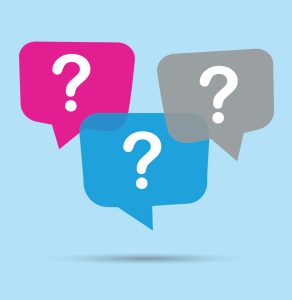
Have a question for Ask LTEN? Submit them to AskLTEN@L-TEN.org
 Welcome to “Ask LTEN,” our bimonthly column devoted to answering your questions and connecting you with life sciences training experts. Here we share questions submitted by LTEN members, with answers sourced from the appropriate experts.
Welcome to “Ask LTEN,” our bimonthly column devoted to answering your questions and connecting you with life sciences training experts. Here we share questions submitted by LTEN members, with answers sourced from the appropriate experts.
Do you have a training-related question? Want to provide an additional answer to these questions? Questions or comments can be submitted to AskLTEN@L-TEN.org.
We won’t use your name if you prefer anonymity.
Question:
I have a few quick questions about field trainers. I’d love to hear thoughts from anyone willing to answer.
- Does your company invest in and deploy actual field trainings?
- If so, how do you size this organization and/or what’s the general setup? For example, what’s the ratio of field trainers to sales professionals?
- What are their specific responsibilities?
- If you don’t have field trainers, do you compensate for not having them in anyway? For instance, with a district trainer or other solutions?
Thanks for taking the time!
Answers:
Thank you for a great series of questions on an important topic. As you might imagine, every company handles the roles and responsibilities differently. So, we’ve asked a few folks to share some thoughts.
If any of our LTEN Focus on Training magazine readers are interested in joining the conversation, feel free to share your thoughts with us at AskLTEN@L-TEN.org.
First, we asked a few members of the LTEN Board of Directors to share their thoughts. Here’s what they had to say:
Hector Baeza, Executive Director, U.S. Commercial Learning & Development, Gilead Sciences:
Yes, we have field trainers. These field sales representatives have added responsibility to help train others.
There is one trainer per region. They “own” a lot of our training, especially with new hires. They also help in the live training sessions.
We have created a development journey for them, so they get additional development out of the role.
Rich Baron, Senior Training Executive:
In a previous position, my team had roles called field trainers. These were full-time training positions that reported in centrally. They were broken down by therapeutic area. We also had roles in the field who were full-time salespeople who also took on local training responsibility.
The field trainer roles were organized and sized based upon therapeutic area, and based upon the needs of any given therapeutic area (number of products, indications field forces, etc.) These were generally not large groups. For the field training roles, there may have been one per district per therapeutic area, which created a great developmental opportunity for the district members.
The field trainer roles did everything from new hire training to launch prep, POA, new indications, competitive backgrounders and so forth. They rode in the field at times but were not formal coaches. These trainers were responsible for pulling through centralized training at a local level, working with new hires, riding and coaching others, running POA workshops, etc.
John Sjovall, Jr., Executive Director, Commercial Learning & Development, SK Life Science:
We currently do not have “official” field support-focused trainer roles. Our long-term plan would be to have region-level roles (part-time trainer and full-time representative).
We also turned to a few members of the LTEN Field Trainer Committee for their perspectives. Here are some of the comments:
Erica Sambraus, Associate Director, Omnichannel Engagement Skills, Novartis Business Services:
Yes, and the program has grown exponentially over the years, expanding across the many therapeutic areas at Novartis. Most therapeutic areas have one field trainer per area/district, while some have one per region.
The field trainers are seen essentially as extensions of the training department. They provide a feedback loop into training to provide field input and perspective into resources and trainings being developed, and they are trained alongside their area business leaders and managers to support rollout of training programs and initiatives.
As Novartis has both product trainers and designated customer engagement skills trainers, field trainers work with all aspects of training to inform and support skills and product training for mostly existing field sales specialists, and some new-hire programs.
Kendra Short, National Product Training Manager, Sanofi General Medicines:
Our training department is successful in large part due to our field training program. We invest in the development of those who take on this role. Our training department deploys them to train topics from a national level and additionally, they are also charged with finding and training to needs within their local markets.
We have approximately five field trainers per zone. These numbers change based on field size, business needs, etc. We reevaluate year to year and flex as needed. Our field trainers assist with new-hire training as well as a variety of other topics that need training throughout the year. This includes helping with POAs, training brand updates, communicating with our training team and marketing teams on needs or gaps they see in their zones, participating in pilots for various departments of our organization, and more.
Joe Wilmoth, Executive Director, Training and Development, Arcutis Biotherapeutics:
While our organization does not have full-time field trainers, we have an established training team (commonly referred to as “district” or “region” sales trainers) that consists of full-time sales representatives offering their time and effort to support training initiatives.
This team supports onboarding of new hires, new-hire programs, national meetings, POAs, workshops and peer coaching through field rides and team support. For these team members, we commit to actively providing multiple opportunities for enhancing professional development and leadership competencies toward career growth.








